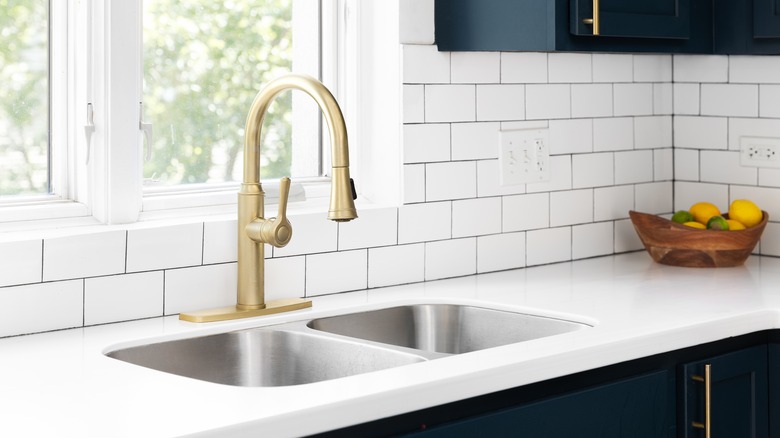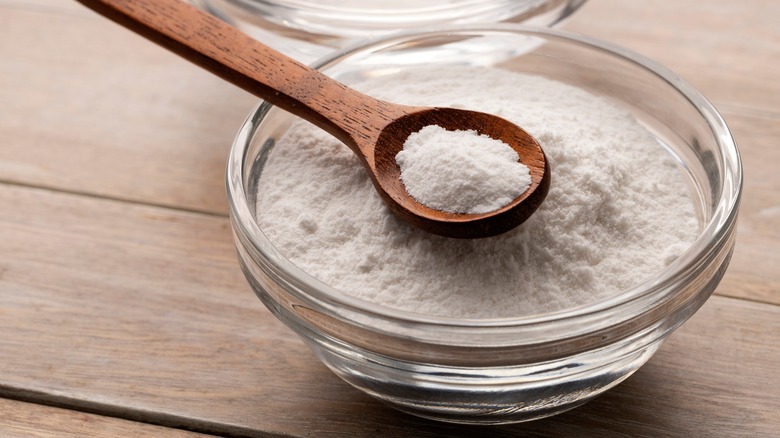Remove Grease From Your Backsplash With This Pantry Staple
Whether you're pan-frying chicken piccata in olive oil or tossing a rich penne a la vodka with crispy prosciutto, grease stains are an inevitable part of cooking, and removing them can be a real pain. There's a scientific reason behind why grease stains can be so stubborn, too. When cooking oil splatters onto your backsplash, it reacts with air and hardens into a sticky, tough layer that regular soap and water struggle to clean. If you don't wipe it down after each use, the grease will build up, becoming harder and harder to remove. But don't worry — there's still hope to fix a stained backsplash and restore its sparkling, brand-new look. To find out how, Food Republic consulted Thomas Borcherding, owner and lead designer of Homestar Design Remodel, who revealed that one pantry staple could be the key to removing stubborn grease stains: baking soda.
"Baking soda is non-toxic, an effective cleaner, and readily available in most kitchens," explains Borcherding. "Due to its alkalinity, [it] breaks down fatty acids in grease." So no, baking soda isn't just a pantry staple for tenderizing steaks or giving shrimp a snappier texture — it also happens to be a lifesaver for all things cleaning, including unclogging drains and removing strong kitchen odors. So don't worry about splashing out on fancy sprays or gadgets — baking soda is all you're going to need.
How to clean any kitchen backsplash with baking soda
There are many different kinds of kitchen backsplash out there. You've got classic and often cozier choices like ceramic or porcelain, as well as modern options such as stainless steel or other metallic finishes. But with different materials come different rules for how you use baking soda to remove tough grease stains.
"For ceramic or porcelain tile, I usually recommend mixing baking soda with a little water to form a paste," Thomas Borcherding explains, adding that once the paste is on the soiled spots, you can use a soft brush to lift the residue. This process "lifts grease without damaging the tile finish." Just remember that a crucial step is to let the paste sit for a while before cleaning it off, giving it sufficient time to break down even the most stubborn stains.
Keep in mind that you do have to be careful with certain materials to avoid damaging their finish. "On natural stone like marble or granite, you need to be more cautious. Baking soda is alkaline and can dull the surface if it's left too long," Borcherding says. His recommendation is to use a less concentrated method: "A light sprinkle on a damp sponge followed by a quick rinse works best." To prevent any water marks or streaks, he adds that it is essential to always dry the stone completely after cleaning.


